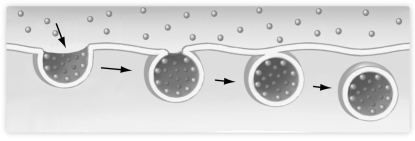Exam 3: Structure and Function of Cells
Exam 1: Human Biology, Science, and Society69 Questions
Exam 2: The Chemistry of Living Things100 Questions
Exam 3: Structure and Function of Cells107 Questions
Exam 4: From Cells to Organ Systems88 Questions
Exam 5: The Skeletal System74 Questions
Exam 6: The Muscular System83 Questions
Exam 7: Blood95 Questions
Exam 8: Heart and Blood Vessels107 Questions
Exam 9: The Immune System and Mechanisms of Defense102 Questions
Exam 10: The Respiratory System: Exchange of Gases81 Questions
Exam 11: The Nervous System: Integration and Control100 Questions
Exam 12: Sensory Mechanisms83 Questions
Exam 13: The Endocrine System82 Questions
Exam 14: The Digestive System and Nutrition80 Questions
Exam 15: The Urinary System70 Questions
Exam 16: Reproductive Systems89 Questions
Exam 17: Cell Reproduction and Differentiation78 Questions
Exam 18: Cancer: Uncontrolled Cell Division and Differentiation77 Questions
Exam 19: Genetics and Inheritance71 Questions
Exam 20: DNA Technology and Genetic Engineering71 Questions
Exam 21: Development and Aging72 Questions
Exam 22: Evolution and the Origins of Life78 Questions
Exam 23: Ecosystems and Populations74 Questions
Exam 24: Human Impacts, Biodiversity, and Environmental Issues71 Questions
Select questions type
Which one of the following is TRUE regarding cellular respiration?
(Multiple Choice)
4.9/5  (35)
(35)
 -The figure above shows a portion of the cell membrane. Which one of the following processes does it depict?
-The figure above shows a portion of the cell membrane. Which one of the following processes does it depict?
(Multiple Choice)
4.9/5  (36)
(36)
The RNA and proteins required for the production of the ribosomes of a cell are produced within the ________.
(Short Answer)
4.8/5  (31)
(31)
All waste, raw materials, and sources of energy for a cell must enter and leave the cell by passing through the plasma membrane.
(True/False)
4.8/5  (45)
(45)
Muscle cells require more energy than most other cells in order to function. Therefore, muscle cells would be expected to have more ________ and ________ than most other cells.
(Multiple Choice)
4.8/5  (38)
(38)
During the citric acid cycle, acetyl CoA is oxidized completely.
(True/False)
4.9/5  (23)
(23)
Most of the ATP produced during cell respiration is produced during the citric acid cycle.
(True/False)
4.8/5  (30)
(30)
Showing 101 - 107 of 107
Filters
- Essay(0)
- Multiple Choice(0)
- Short Answer(0)
- True False(0)
- Matching(0)